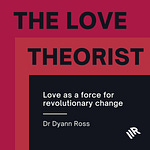There is a common misunderstanding that if you are burnt out you can’t cope, that you are weak, that you can’t do your job. Burnout needs to be re-defined so we don’t keep blaming ourselves when our workplace has betrayed us. In fact signs of burnout are not the end of your strength rather that you are needing all your resources to do your job in taxing circumstances. Burnout can be thought of as our bodies protesting when our hearts have been over-ruled or hurt too many times.
In this podcast I suggest that by recognising several key feelings, namely, anguish, hopelessness, despair and shame that we can then trace the source of those exhausting and confidence depleting experiences. Drawing on Brene Brown’s idea of institutional betrayal, I suggest our heart-of-heart feelings are warning signs that the workplace is hurting us by unfair and unkind actions, perhaps also sometimes by failures to act to show care and regard for us. Our values can be betrayed when we can’t act to uphold them due to workplace toxicity or extreme demands. There can also be a betrayal in not recognising our effort and contribution. And the betrayal of the broken promise that our caring work of others would be held, supported and honored.
When institutional betrayal is rampant, this is not about individual failings to do our job well or to cope better, this is about a culture of complicity and shame (Brown 2021). The purpose, whether intentional or not, is to control workers through fear and undermining through blaming people for workplace short-comings. Burnout is experienced in our bodies and is thus very personal. Burnout is not a personal experience only though as it occurs through relationships and the patterns inherent in the workplace culture. It is an act of strength to survive or flourish in workplaces when feeling burnout and being impacted daily by betrayals.
Thank you for listening to my podcast and for supporting my work. You can follow me on TikTok and Instagram. You might find my book - Broken-heartedness: Towards love in professional practice - interesting for ideas and skills to resist harmful people and places, by being guided by the love ethic. Available at https://www.revolutionaries.com.au/books/p/bh
Cited reference:
Brown, B. (2021). Atlas of the heart. London: Penguin Random House.
Do feel free to drop me a comment here or I can be contacted directly at dyann@dyannross.com






Share this post